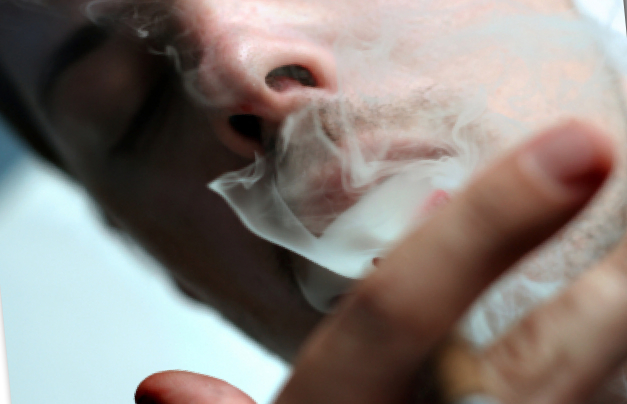
We’re not doing well providing work for our young people. When they do find work, they’ll probably earn less than their parents, probably form less stable intimate relationships, and age into more uncertain retirements.
But, hey, don’t say we do nothing for our kids. Instead of work, marriage, and security, we can offer pot, porn, and video games. Marijuana possession is now legal in Colorado and Washington. California also allows marijuana possession, if users can pay a doctor to prescribe it as “medicine.”
Yet even in the 47 states that formally ban marijuana, the drug is available everywhere and at modest cost. Although data are difficult to come by, it’s generally scientifically accepted that Americans smoke more marijuana per person than any other people on earth.
And really, why should that be surprising? Americans drink more than other people, eat more, crash their cars more, and shoot themselves (and each other) more. Name a risky behavior, and the United States is, if not No. 1, then usually in the top two. Marijuana use is just one more example of a consistent national pattern.
When we discuss marijuana, we usually bog ourselves down in a too-familiar debate about legalization. Prior to that question, however, let’s consider another: what should we think about marijuana and the way Americans use it? For if there’s one thing on which we can all agree, it is that legalization will mean even more use by even more people.
Habitual marijuana users experience more difficulty with learning and schooling. They do worse at work, miss more workdays, and suffer more accidents. They have fewer friends and occupy lower rungs on the socioeconomic ladder.
Does marijuana cause these problems? That’s hard to say. The National Institute for Drug Abuse offers a cautious read of the brain science: “Research has shown that, in chronic users, marijuana’s adverse impact on learning and memory can last for days or weeks … As a result, someone who smokes marijuana every day may be functioning at a suboptimal intellectual level all of the time. Research into the effects of long-term cannabis use on the structure of the brain has yielded inconsistent results. It may be that the effects are too subtle for reliable detection by current techniques.”
It’s also possible that habitual marijuana use is a symptom rather than a cause of other troubles. Maybe people who have more difficulty at school and work are more likely to smoke. Whichever way the causation runs, marijuana smoking is a sign of trouble, a warning to heed, a behavior to regret and deplore.
The good news is that many—most—young people will experiment with marijuana, quit, and suffer no long-lasting ill effects. The bad news is that more young people are experimenting with marijuana, raising the absolute numbers of those who will become habitual users.
The young people most likely to become habitual users are those who already face declining opportunities. Over the past generation, American society has closed route after route into the middle class. Wages are stagnant, upward mobility has slowed, job security has deteriorated, higher education has become more expensive, and two-parent families have dwindled. Meanwhile, we have opened more and more roads to self-harm. Must we now open another?
It’s baffling to me that people who profess anxiety about the trend to social inequality will so often endorse drug legalization. A world of legal drugs will be a world in which the fates of the top one third of Americans and the lower two thirds will diverge even more than they already do. A world of weaker families, absent parents, and shriveling job opportunities is a world in which more Americans will seek a cheap and easy escape from their depressing reality. Legalized marijuana, like legal tobacco, will become a diversion for those who feel they have the least to lose.
“People tend to think if you’re against legalization, you’re in favor of increasing the jail population,” says Kevin Sabet, until recently a senior staffer in the Obama administration’s Office of National Drug Control Policy. “The reality is, we can reduce marijuana use as well as incarceration rates. They are not mutually exclusive goals. We can do that through smart measures, such as brief medical interventions, along with more intensive treatment when needed. Our choices are not as stark as advocates would like us to believe.”
Sabet is forming a new group to find a third way between those stark alternatives. He deserves support because young Americans deserve better than to be led to a future shrouded in a drug-induced haze.
After writing this column in December 2012, David Frum joined SAM’s board of directors. He is a contributing editor at The Daily Beast and a CNN contributor. He is also the author of eight books, including his first novel, Patriots, published in April 2012.